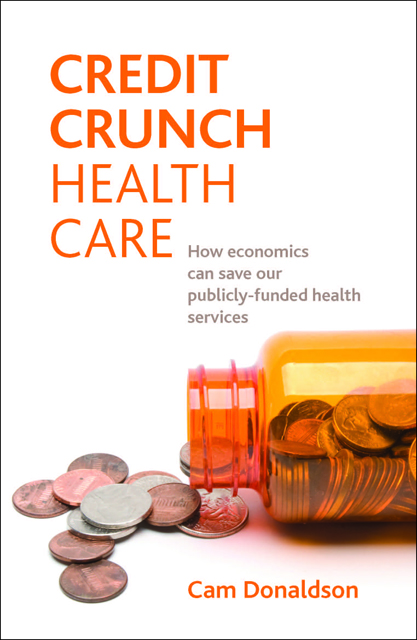Book contents
- Frontmatter
- Dedication
- Contents
- List of figures, tables and boxes
- About the author
- Acknowledgements
- Foreword
- one Introduction: the quid pro quo of health care
- two Market failure and health care
- three Charging the public: exception or anomaly?
- four Reform, privatisation and those damn doctors
- five The fiscal future of health care: an economistâs rant
- six Economic evaluation
- seven Whatâs your health worth?
- eight Conclusion
- Appendix: 'What's your health worth?' A questionnaire
- Index
eight - Conclusion
Published online by Cambridge University Press: 15 April 2023
- Frontmatter
- Dedication
- Contents
- List of figures, tables and boxes
- About the author
- Acknowledgements
- Foreword
- one Introduction: the quid pro quo of health care
- two Market failure and health care
- three Charging the public: exception or anomaly?
- four Reform, privatisation and those damn doctors
- five The fiscal future of health care: an economistâs rant
- six Economic evaluation
- seven Whatâs your health worth?
- eight Conclusion
- Appendix: 'What's your health worth?' A questionnaire
- Index
Summary
We started by describing public funded health care as a series of quid pro quos; in other words, a set of compromises. Knowing what we now know, what compromises are left to make? Is it time to draw some lines in the sand?
Itâs official: publicly funded health care provides âcompetitive advantageâ
First, we know we can argue strongly that the public funding of health care is both equitable and efficient. Governments need to be explicit about this and support such a position. For example, and the reason I say âitâs officialâ, the Canadian government, on its Health Canada website, is very explicit about the gains the Canadian economy derives from its publicly funded health care system:
The competitive advantage that publicly financed healthcare provides to Canadian business is significant. Public financing spreads the cost of providing health services equitably across the country. In addition, financing health insurance through the taxation system is cost-efficient because it does not require a separate collection process.
More governments should stand behind their health care system in this way.
What role for health care reforms?
Within the general policy area of health care reform, little or no faith can be placed in changes aimed at pushing the burden of health care decision making on to patients and the public. For example, financial incentives in the form of user charges do not work, whether assessed in terms of cost containment, efficiency or equity. The same applies to medical savings accounts and, to a lesser extent, patient budgets. Naïve politicians, other policy makers, doctors and even economists will ârediscoverâ user charges and the like from time to time. We need to keep shooting down their arguments.
What of other reforms? Here, context is everything. Internal markets within publicly funded systems do seem to have had some positive impact. However, such reforms are never left in place long enough for us to be definitive, and, with efficiency being merely one goal of health care, any discernible impact has been small. Moreover, such reforms have not been able to arrest the continued slide into an acute-sector-dominated form of medicine. This model is outdated. We need to get away from the view that we are fit one minute, seriously ill the next, miraculously treated, and thus returned to full health.
- Type
- Chapter
- Information
- Credit Crunch Health CareHow Economics Can Save Our Publicly Funded Health Services, pp. 117 - 122Publisher: Bristol University PressPrint publication year: 2011



